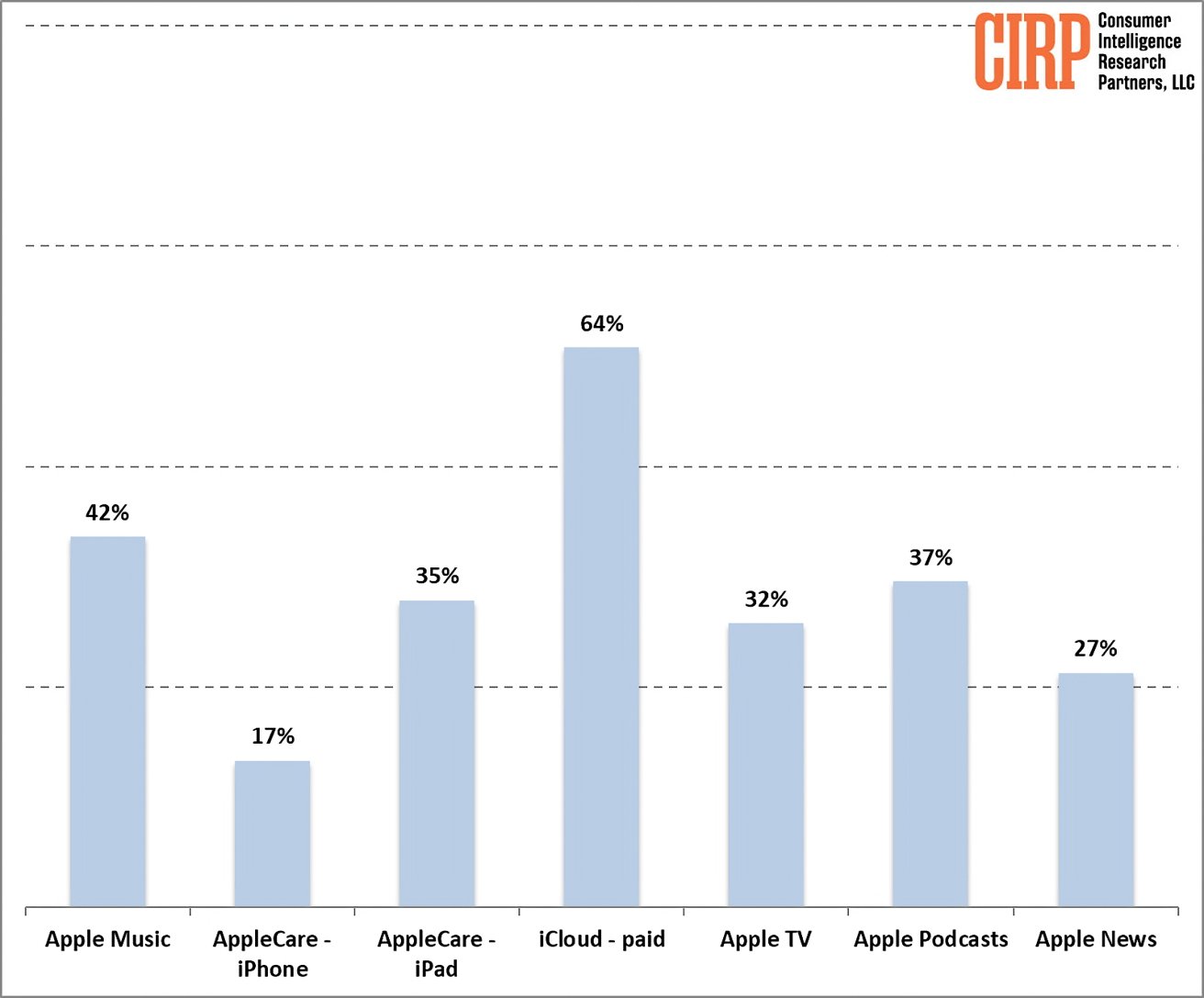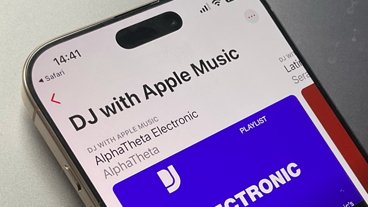With hardware sales slowing, Apple shifted to expanding its digital services offerings to generate billions each quarter. One service stands out as the clear leader.
Apple has been aggressively expanding its Services segment, including Apple Music, Apple TV+, AppleCare, and the App Store, to create a steady revenue stream that balances hardware sales. While all services are not equally popular, paid iCloud storage is the most widely adopted despite its low cost compared to other services.
Nearly two-thirds of US Apple customers subscribe to paid iCloud storage, according to new data from Consumer Intelligence Research Partners (CIRP). The seamless integration across Apple devices and the paltry 5GB free storage limit encourage users to upgrade to paid tiers once they exceed it.
The deep integration of iCloud storage into Apple's ecosystem and its lack of direct competition make it the default choice for most Apple users. As a user's digital footprint grows, system prompts encourage users to upgrade their storage, ensuring a smooth transition from free to paid tiers.
Although competing cloud storage services like Microsoft's OneDrive, Google Drive, and Dropbox exist, they lack the ability to seamlessly integrate into macOS or iOS. Consequently, users are required to manually upload their files, which may result in specific data types, such as Apple Notes, eBooks, and health data, getting left behind.
The competition: streaming services & AppleCare
Apple's streaming services face tougher competition. Apple Music competes with Spotify, while Apple TV+ faces Netflix. However, Apple Music and Apple TV+ have significant market shares, with 42% and 32% of Apple customers subscribing, respectively.
The company's other media services, like Podcasts and News, have a substantial user base, but these numbers may include free users. The fierce competition, with many alternatives, makes it harder for Apple to dominate these areas, unlike with iCloud storage.
AppleCare, the company's extended warranty service, has lower adoption rates than its digital services. Due to competition from carriers and retailers, only 17% of iPhone buyers opt for AppleCare. Unlike iCloud storage, AppleCare faces direct competition in a market with multiple options at the point of sale.
Apple faces the dual challenge of maintaining existing service growth and innovating new offerings to capture customer interest. Paid iCloud storage's success demonstrates how tightly integrated services drive user adoption and steady revenue.
However, replicating this success across services requires navigating a more complex competitive landscape. Apple's ecosystem leverage is crucial for sustaining the growth of the services segment.
 Andrew Orr
Andrew Orr







-m.jpg)






 Charles Martin
Charles Martin
 Marko Zivkovic
Marko Zivkovic

 Amber Neely
Amber Neely

 William Gallagher and Mike Wuerthele
William Gallagher and Mike Wuerthele









14 Comments
Really? More people subscribe to podcasts than TV?
I have raised my iCloud+ space from 200GB to 2TB last week. I want all my Apple devices to have access to "everything". I'm installing the iCloud app on my most recent Windows devices, and I have had iSync Premium on my Android devices for a few days now.
I did hesitate, as I'm also paying for several other cloud services (most of them amounting to 2TB each), but each cloud seems to have its own pros and cons. Like being tied to a given ecosystem or being neutral.
I have noticed that macOS can only sync the Desktop and Document folders with iCloud, but I'd love to have Downloads added. My work-around: creating a Downloads-[computer name] folder in Documents, and agreeing with myself to move everything from Downloads proper to Downloads-[computer name] to have it in my on-line pool.
On the other hand, I may want to move certain folders away from Documents. Think of purchased content related to making music. I'll have to check that.
The freeing of local storage did play a role: I'm considering a 2013 MacBook Air with 256GB in use.
And yes, a "mirrored" situation is supposed to be in place already with my Windows devices and OneDrive.
Just imagine how much more they could bring in if they had an iCloud tier between 200GB and 2TB. Say 750GB for half the price of 2TB
My two points… worthless as usual.
1— If I am not wrong… the Apple One bundle includes music, tv… and additional storage.
So… maybe… there is some juxtaposition in the charts.
2— Apple has other ‘services.’ Business Essentials gives storage, Apple Care, and support for small business.
I did not see any reference to that in the study.